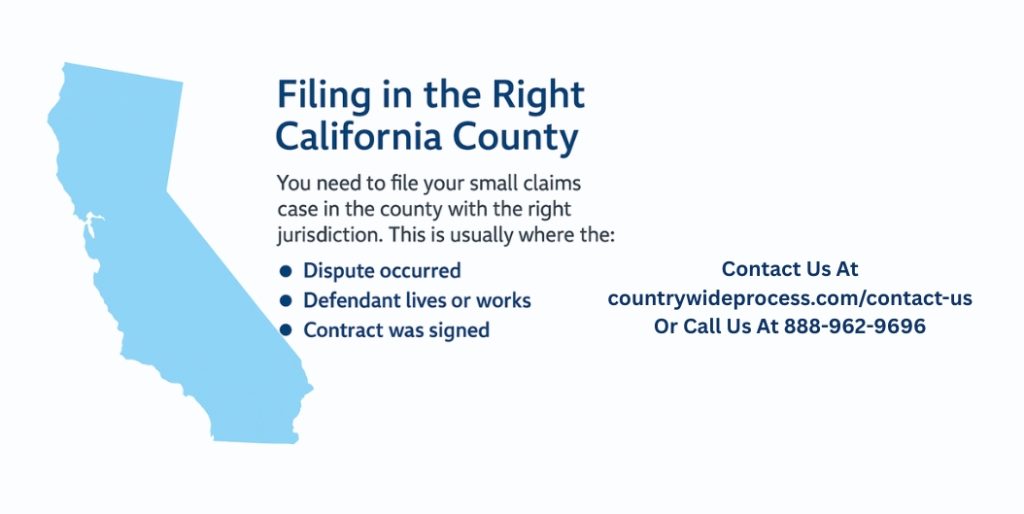When preparing to sue someone in California Small Claims Court, one of the most important steps is making sure you file your case in the correct county. Choosing the wrong courthouse could cause unnecessary delays, or even result in your case being dismissed entirely.
In legal terms, this is called “venue”—the proper geographic location where your case must be filed. Understanding and following venue rules ensures that your claim is heard by the right court with the appropriate jurisdiction.
Small claims courts are county-specific. If you file in the wrong venue, the judge may:
Filing in the wrong place also gives the defendant a valid defense to challenge your case—even if your claim is otherwise legitimate.
In most situations, you must file your small claims case in the county where:
Example: If a customer owes you money for services you performed in Los Angeles County, then Los Angeles is typically the proper venue.
Use the California Court Locator to:
Each county has its own small claims division—some have multiple branches depending on the location of the dispute.
Our Self-Guided California Small Claims Filing System walks you through the right questions to ensure your case is filed in the proper jurisdiction. You’ll avoid rejections, delays, and added costs.
You can also learn more about what you’ll need before starting the claim by reviewing: What You Need Before Filing a Small Claims Case
Choosing the right county to file your small claims lawsuit is not just a technical step—it’s critical to the success of your case. A mistake here can mean lost time, extra fees, and a major headache. Follow the venue rules, use available resources, and consider tools like Countrywide Process to ensure a smooth filing experience from start to finish.

Countrywide Process
May 22, 2025